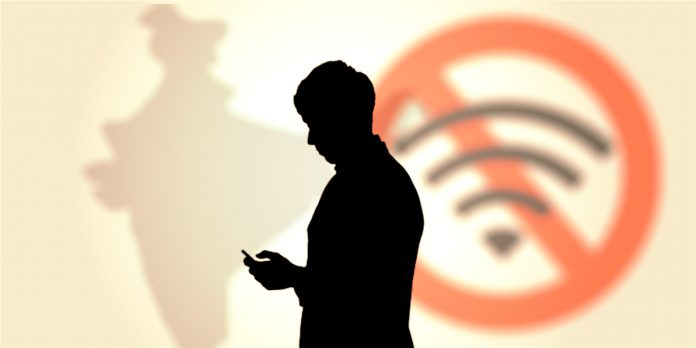This article has been written by Varun Wahane, from the Bharati Vidapeeth New Law College, Pune.
Table of Contents
Introduction
“Freedom of speech is in principle pillar of free government when this support is taken away, the constitution of a free society is dissolved, and tyranny is erected on its ruins.”
– Benjamin Franklin
The Internet has become an integral part of media and information, as the internet gives the medium to express and put any view in the public domain through various social media, websites, media is a medium of exercising human rights as given in the UDHR Art 19, which gives the rights to the people to freedom of opinion, expression and to seek information and exchange of ideas. Secondly, Art 27 of the UDHR gives the freedom to all humans to freely participate in social-cultural activities and share scientific advancement and benefits. both the articles make a foundation of liberty and fraternity in the world and give access to every human to for practising their socio-political rights as given in the ICCPR.
The relevance of internet access for democratic principles
Freedom of expression and assembly are important in a democracy, for creating opinion and practising voting rights. A study in U.K shows that the internet is important for building a strong democracy and maintaining a check and balance system.
The Internet is important for exercising Art 19 & 27 for the proper functioning of a democratic society, the internet has become an important portal for the exchange of ideas and views on political and social issues, therefore, the internet is a part of media and journalism.
Cases
In the case of Gauthier v. Canada, the exchange of ideas on political issues by citizens about the electoral system and candidates is important, the media must be able to comment on the issues without censorship to inform the Public. This gives citizens the freedom to get access to information through the media to form an opinion on the elected bodies and their members.
In the case of Thorgeirson v. Iceland, it was said that Freedom of expression encourages free political debate which is the core concept of Democratic society.
In the case of Handyside v. United Kingdom, state that freedom of expression is a foundation of democratic society. Compulsory Membership in an Association Prescribed by Law for the Practice of Journalism, Advisory Opinion says that “not only the media has the right to give the information but also the public has a right to receive information”.
Internet web media has given journalism a platform to give uncensored information, accessing the information on the Internet is much easier and filtered rather than searching on newspapers and magazines that are influenced by political or powerful forces. Therefore, the Internet plays a crucial role in safeguarding democratic principles in the modern world.
U.N. on internet access as the Human right
The U.N. has expressed its views on protecting and preserving the rights given in the UDHR. The Frank La Rue report on the right to freedom of opinion and expression by UNHRC classifies that Internet access is a human right and the Internet is a medium of freedom and expression. The report at the same time says that there must be a lawful restriction for the protection of the rights of others. However, freedom of expression is not an absolute right, under ICCPR freedom of expression can only be restricted by lawful means in the necessity for protection of national security or public order given in article 19. Freedom of expression is interlinked to the Internet in the modern world. The Internet has become about expressing social-political views, giving Internet access dignity of the human right would strengthen the democratic principles in the world. It also promotes practising the right given in the international covenant for civil and political rights.
However, online access to the internet empowers freedom of speech and assembly. It has a negative perspective through administrative law and implementation, it can be misused negatively by the extremist forces against the government or administration to provoke and promote hate and violence in society.
A need for a balance of rights for the healthy enjoyment of rights to all
Before making internet access a Human right the state parties need to build strong cybersecurity, the abuse of a right is much easier as the internet is a boon to democratic principles and a curse to authoritative governments and extremist forces, the internet is a medium of spreading propaganda and extremism in a state. the state parties will have to direct by legislative acts on ways of enjoyment of different human rights.
With time as human civilisation advances, the basic need will increase so will human rights. The Internet is a necessity and thus a recognised human right. Moreover, the internet gives the foundational rights of a democratic society. Thus, the internet gives fundamental aspects of human rights.
Every right can be abused so is the right to expression of thoughts through the internet but denial of a right by the state is a violation of international human rights. Thus, internet access cannot be denied by the state to any citizen just from the perspective of national security, it is the responsibility of the state to create a protective bubble so that the citizens can enjoy all the rights without violating other laws.
At the Digital World and Implementation of the Roadmap for Digital Cooperation, the U.N. secretary-general said “If we do not come together now around using digital technology for good, we will lose a significant opportunity to manage its impact, and we could see further fragmentation of the internet, to detriment of all.”
LawSikho has created a telegram group for exchanging legal knowledge, referrals and various opportunities. You can click on this link and join:
 Serato DJ Crack 2025Serato DJ PRO Crack
Serato DJ Crack 2025Serato DJ PRO Crack











 Allow notifications
Allow notifications


